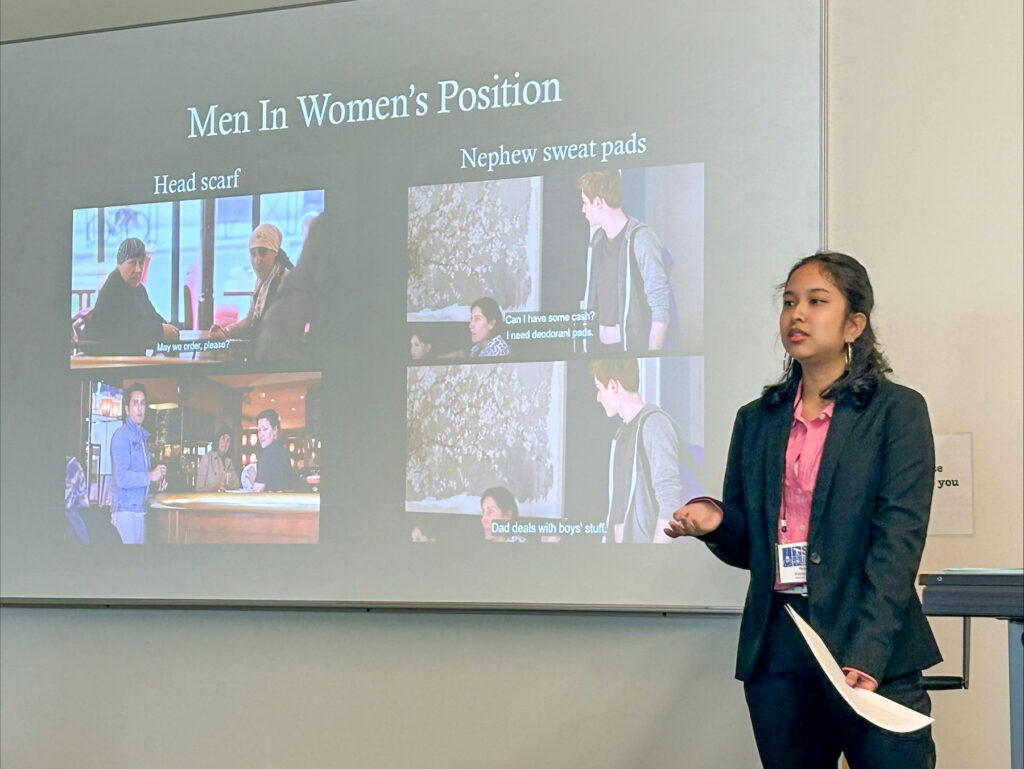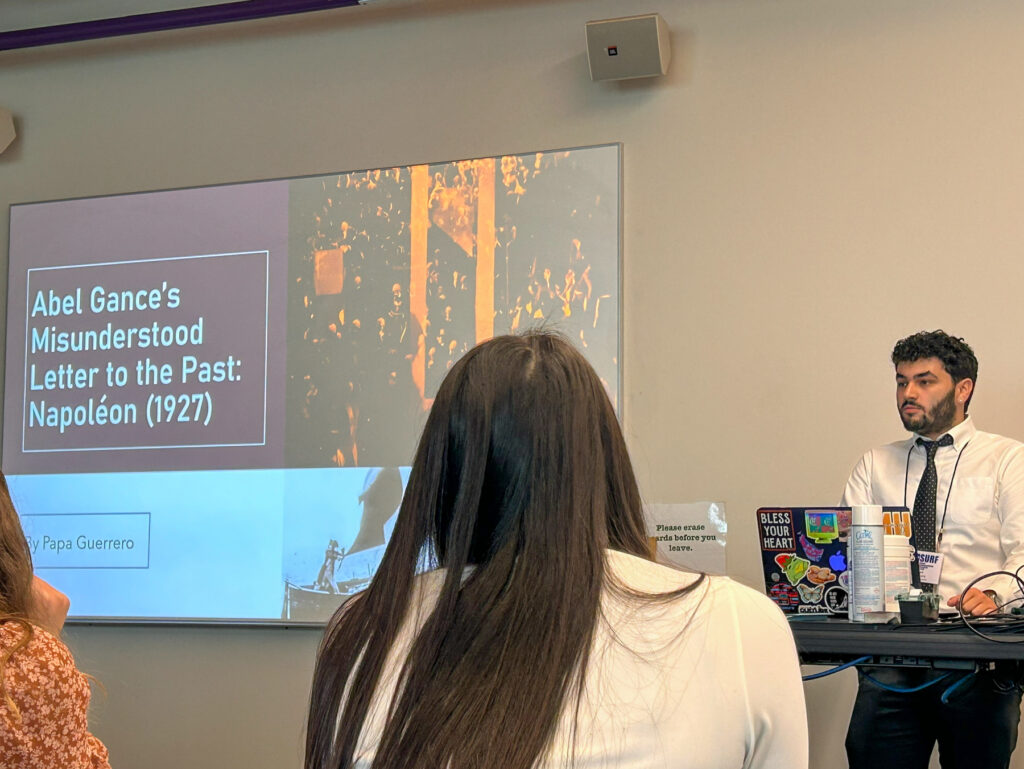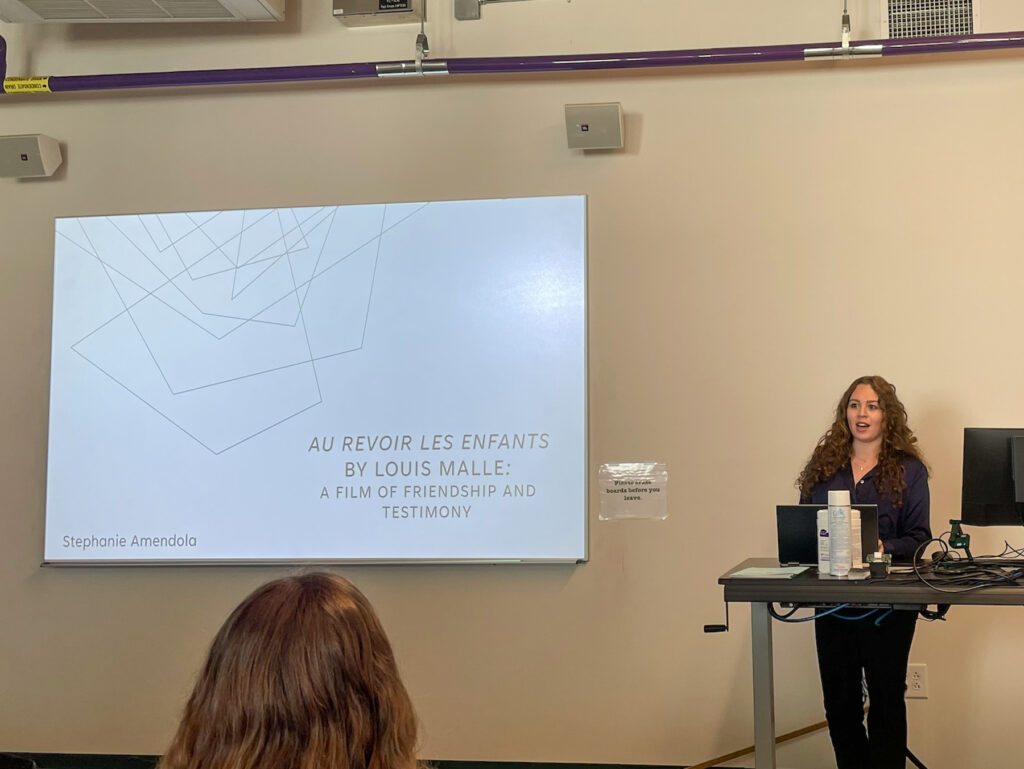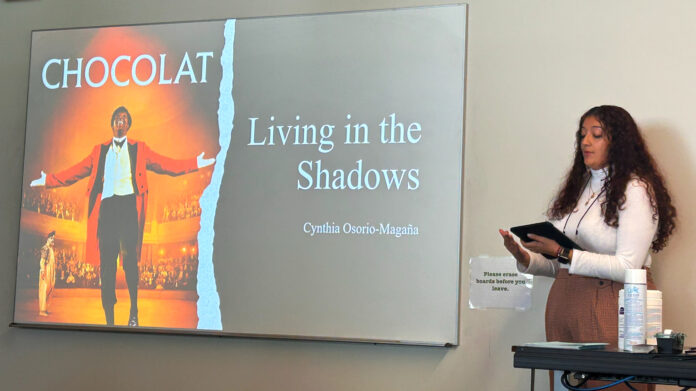
Mercer University students are exploring French history and culture through the lens of cinema.
The films, spanning from the invention of cinema to the contemporary period, allow students to witness moments and mentalities that influenced French society, said Dr. Alexis Chauchois, assistant professor of French in the College of Liberal Arts and Sciences.
“Cinema is a cultural agent that reflects a period and all the while produces a critical point of view on said period,” he said.

The class, FRE 385: History of French Cinema, is taught entirely in French. The class meets twice a week, and students watch an assigned film over the weekend. After watching the film, they post their impressions on an online discussion board.
On Tuesday in class, they discuss the film in a casual format, as if they were friends meeting at a café after watching a movie. Then, students delve deeper into the film through assigned readings and specific questions posed by Dr. Chauchois. On Thursday, they discuss the questions in class.
“The class is a subtle blend of conversation, reflective work and writing, all in French,” Dr. Chauchois said.
Each year, he selects a theme for the class. This year, it’s rebellion.
“The theme of this year was chosen due to the profound changes currently affecting our societies and the various conflicts that are emerging or re-emerging,” he said. “Furthermore, protesting is a genuine culture in France.”
Rebellion in the films takes many forms, from children rebelling against their school and parents to a revolt in the French suburbs. Rebellion encompasses various themes including immigration, racism, feminism and more, Dr. Chauchois said.
This year, four students from his class presented research at the SoCon Undergraduate Research Forum, or SURF, in October at Wofford College.
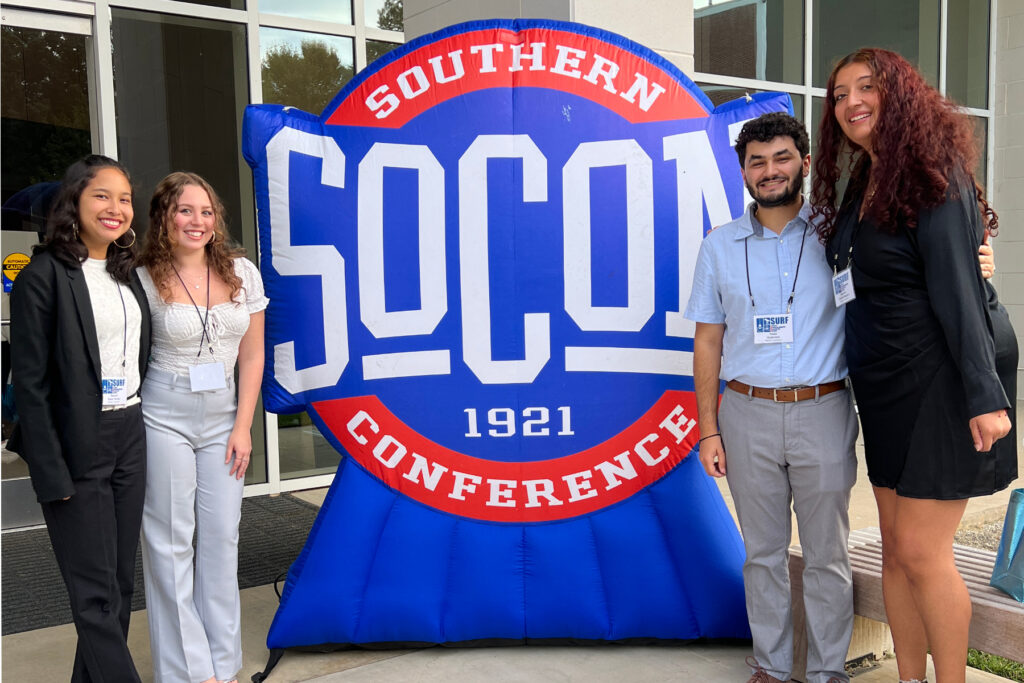
Stephanie Amendola, a junior double-majoring in French and biology, presented “Au revoir les enfants: A Film of Testimony Against Antisemitism.” Papa Guerrero, a junior double-majoring in French and philosophy, explored “Abel Gance’s Napoléon: A Modern Love Letter to the Past of Theater.”
Harumi Kano Torres, a junior triple-majoring in French, art and creative writing, investigated “Feminism and Masculinity in Eléonore Pourriat’s Je ne suis pas un homme facile.” And Cynthia Osorio-Magaña, a junior triple-majoring in French, Spanish and psychology, delved into “Living in the Shadows: The Forgotten Story of the First Black Artist in France, Chocolat.”
“Almost all the movies that we’ve watched in our class, they have this sort of idea of a rebellion, a revolution,” Guerrero said. “There’s always this idea of some rules being placed on people and people trying to break them.”
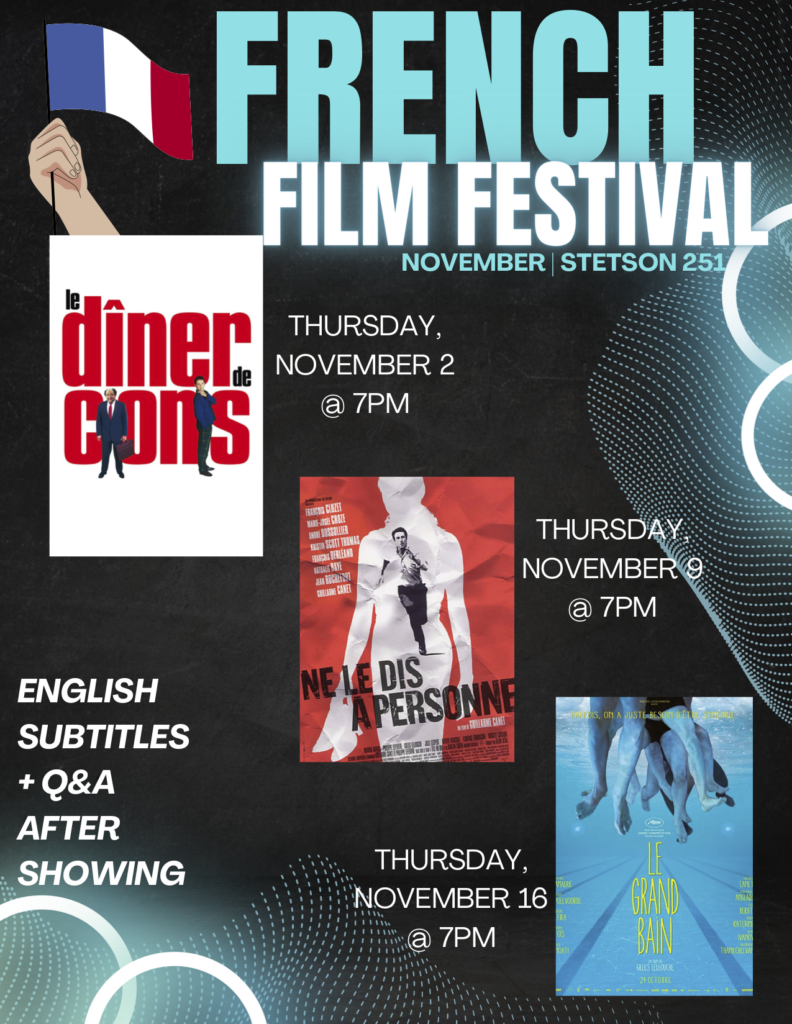
The six students who did not present at the SoCon Undergraduate Research Forum are presenting their work at Mercer’s French Film Festival. Held over three dates in November, the next film, “Ne le dis à personne,” will be shown Nov. 9. The final film, Le grand bain, will be shown Nov. 16. Both will take place at 7 p.m. in Stetson Hall, Room 251.
During the class, students also learn about methods and formal aspects of cinema.
“I’ve learned that the decisions in the films that the directors make are very important to the overall message that they want to send out to the audience,” Amendola said. “People don’t really realize that movies have messages, and they’re not going to be straight up given to you. It’s something that you have to interpret as an individual.”
Kano Torres said she has gained admiration for each director’s technique for that reason.
“There’s a meaning behind everything — the way a shot is filmed, the duration, how it switches from here to there, what people are in it, what they say,” she said. “Because I study creative writing, I assume it’s all in the story … but I just never thought about how the technicality of filmmaking could also have a meaning. Different techniques that I just never thought about now have so many meanings.”
Osorio-Magaña said she has enjoyed learning about how French film has changed throughout the years.
“The class gives a more in-depth history of understanding the way films are created, why they’re created and what they’re striving to achieve,” she said.
